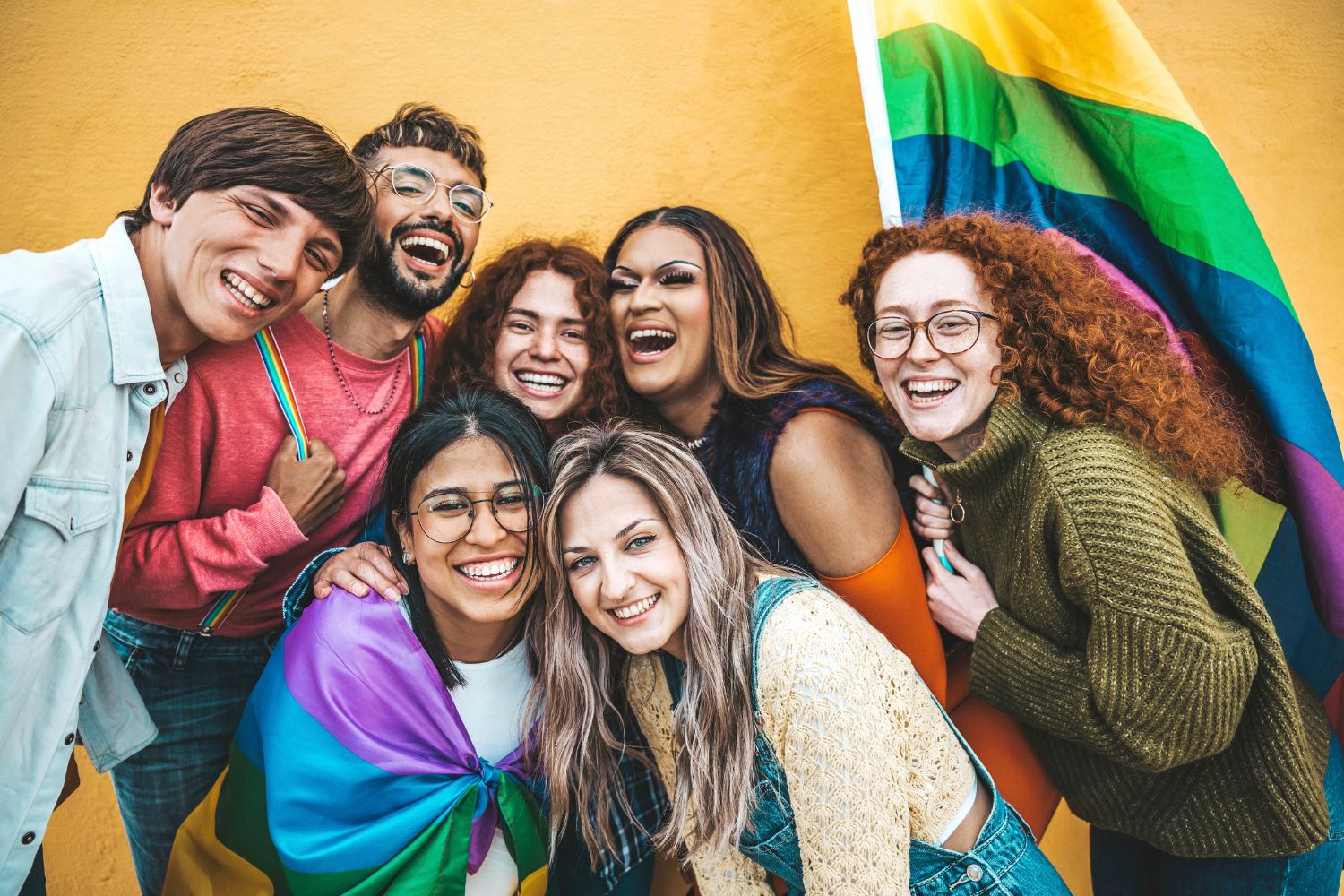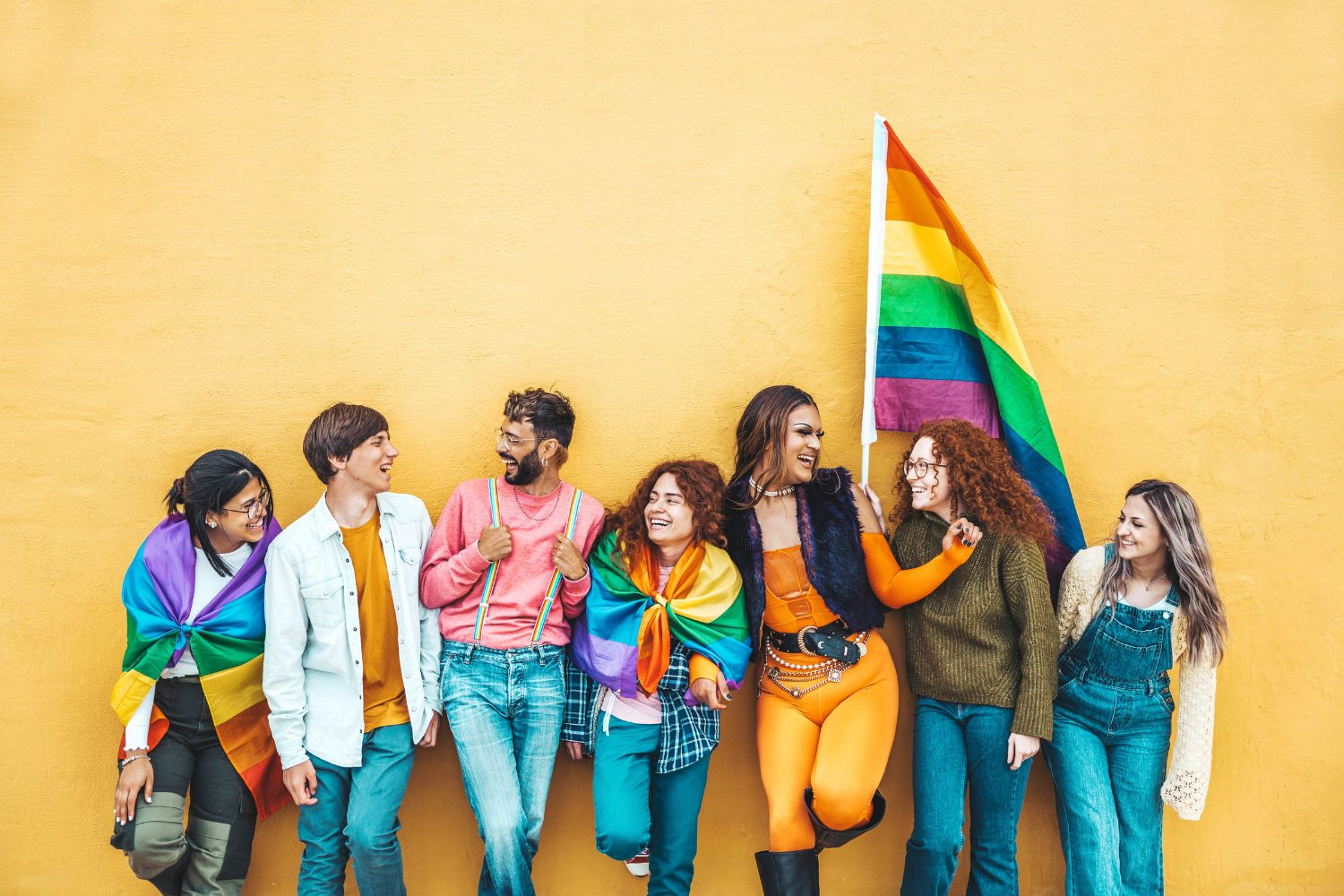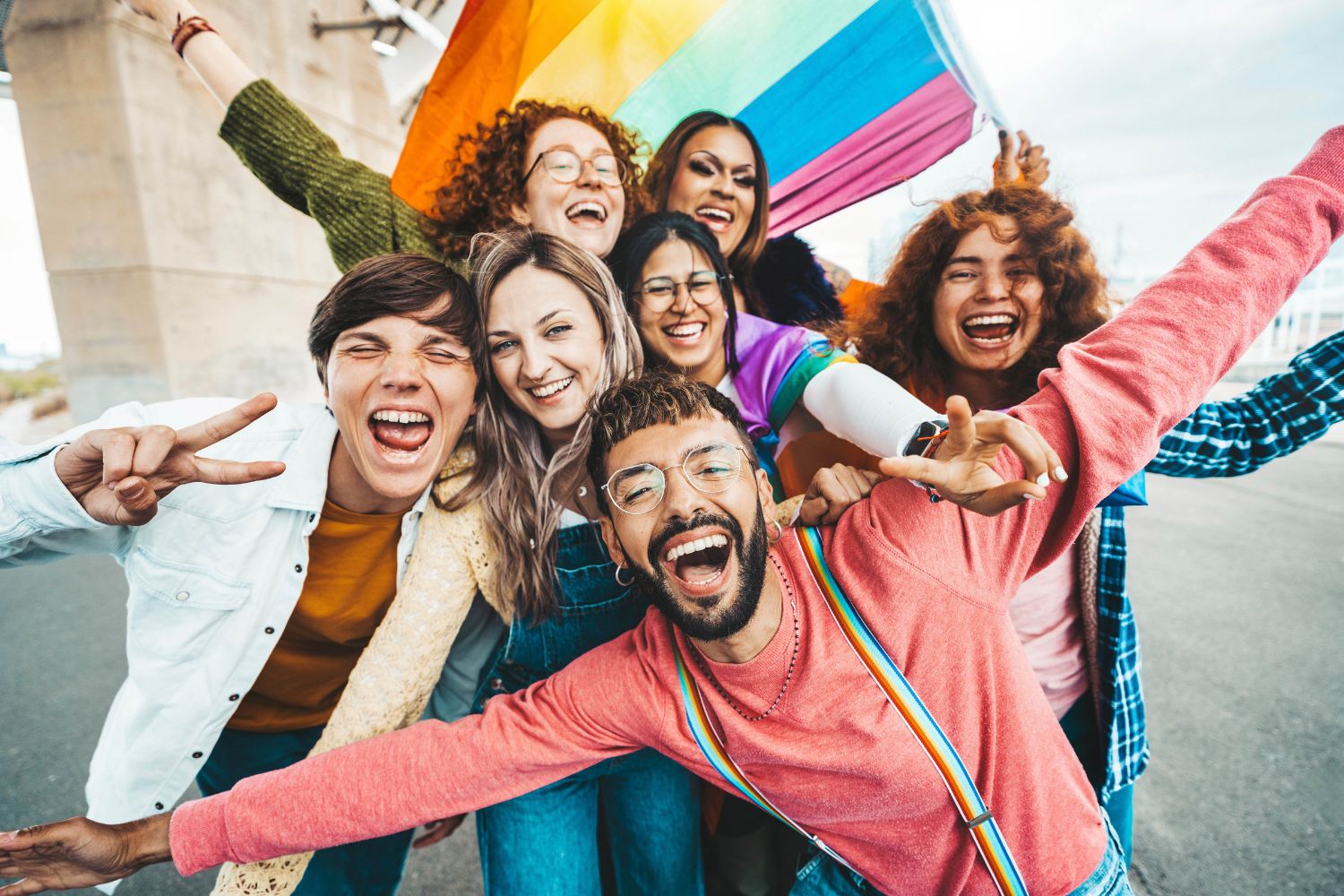Understanding the Impact of Homophobia and Transphobia in Russian Society
Despite advancements in human rights elsewhere, homophobia and transphobia remain deeply entrenched in Russian society—with devastating consequences for individuals, communities, and the nation as a whole.
At CFSphere, our mission is to illuminate systemic oppression, advocate for structural change, and support the people most affected. This article explores the roots, manifestations, and real-life impact of anti-LGBT+ sentiment in Russia today.
Structural Homophobia and Transphobia: More Than Personal Prejudice
Homophobia and transphobia in Russia are not just cultural attitudes—they are state-sponsored ideologies.
Key enablers include:
- The “Gay Propaganda” Law: Prohibits the public dissemination of information portraying LGBT+ relationships as acceptable, effectively criminalizing education, media, and support services.
- Legal Ban on Gender-Affirming Care: As of 2023, gender transitions are illegal in most forms, cutting off access to life-saving medical and psychological support for trans people.
- State-Controlled Media Narratives: LGBT+ individuals are portrayed as threats to “traditional values,” fueling fear and hatred among the public.
Social Impact: Fear, Silence, and Erasure
The societal toll of homophobia and transphobia is profound and multi-layered.
1. Mental Health Crisis
LGBT+ individuals in Russia face:
- Heightened rates of depression, anxiety, PTSD, and suicidal ideation
- No access to affirming mental health care
- Constant fear of being outed or harassed
A 2022 survey found that more than 70% of Russian LGBT+ youth have considered suicide due to stigma and isolation.
2. Violence and Abuse
- Physical assaults often go unpunished or are ignored by authorities
- Victims of “corrective” violence or blackmail rarely receive justice
- Trans people are especially vulnerable to both physical and institutional abuse
3. Family Rejection and Economic Vulnerability
- Coming out often leads to family eviction, loss of financial support, or institutionalization
- Many LGBT+ Russians are forced into precarious housing, informal work, or underground support networks
Institutional Repression: Schools, Healthcare, and Workplaces

Even institutions meant to protect and empower people—like schools or clinics—are complicit.
- Schools: Teachers are forbidden to discuss LGBT+ issues or intervene in bullying under propaganda laws.
- Healthcare: Trans people cannot access hormone therapy or surgeries legally. Homosexuality, while decriminalized, is still pathologized in many clinics.
- Workplaces: There are no legal protections against discrimination based on sexual orientation or gender identity.
Cultural Gaslighting: The Role of Propaganda
State propaganda consistently frames LGBT+ people as:
- Western agents
- Moral threats to children
- Symptoms of social decay
This framing isn’t accidental—it’s politically useful. Stoking cultural fear distracts from economic and political instability.
Resisting the Narrative: The Role of Community & International Solidarity
Despite repression, LGBT+ individuals in Russia continue to resist—through underground networks, digital platforms, art, and advocacy.
CFSphere supports:
- Emergency aid for LGBT+ individuals facing violence or homelessness
- Confidential digital safe spaces and encrypted communication networks
- Collaborations with international human rights bodies and legal aid groups
Why This Matters Globally
Russia’s systemic homophobia and transphobia are being exported as part of a broader anti-democratic ideology. Countries across Eastern Europe, Central Asia, and even parts of Africa have adopted similar legislation—citing “protecting traditional values” as justification.
When we ignore institutionalized hatred in one country, we embolden it everywhere.
Final Thoughts: Understanding is the First Step to Change
The impact of homophobia and transphobia in Russia isn’t theoretical—it’s lived, daily, and urgent. From mental health and physical safety to access to education and employment, the damage is deep and generational.
At CFSphere, we believe understanding must lead to action. The road ahead is long, but visibility, funding, legal pressure, and grassroots support can shift the tide—one policy, one story, one life at a time.
How to Support LGBT+ Organizations in Hostile Environments
In regions where LGBT+ identities are criminalized, censored, or violently suppressed, grassroots organizations become lifelines. They offer safety, advocacy, healthcare access, and psychological support in places where the state often does the opposite.
But these groups can’t do it alone—and supporting them requires strategy, sensitivity, and long-term commitment.
At CFSphere, we specialize in strengthening LGBT+ support systems in countries where rights are under siege. Whether you're an activist, donor, organization, or global ally, here’s how to provide effective and ethical support to LGBT+ organizations operating in hostile environments.
Why This Work Matters
In countries like Russia, Uganda, Iran, and others:
- LGBT+ individuals face legal persecution, social ostracism, and physical violence
- Advocacy groups operate underground or under constant surveillance
- International support is often blocked, restricted, or politicized
And yet, these groups persist—offering shelter, legal aid, trauma counselling, HIV prevention, and more. Your support can be the difference between survival and silence.
1. Understand the Local Context
Before offering help, listen and learn. What works in the U.S. or Western Europe may be counterproductive in authoritarian or conservative societies.
- Understand local laws, risks, and cultural dynamics
- Don’t assume Western activism models apply
- Follow the lead of local LGBT+ leaders, not outsiders imposing solutions
Tip: Read local news, research regional advocacy reports, and avoid “savior” narratives.
2. Fund Quietly but Consistently
Money matters—but how it's given matters more.
- Use secure, discreet payment channels (cryptocurrency, encrypted platforms, donor-advised funds)
- Support core operating costs, not just high-visibility campaigns
- Offer long-term, unrestricted funding rather than short, project-based grants
3. Protect Identities and Infrastructure
Many organizations operate under threat. Don’t compromise their safety through exposure.
- Never tag, quote, or publicly share info about activists without consent
- Help fund cybersecurity, VPNs, encrypted communication tools, and anonymous hosting
- Advocate for digital hygiene and threat modeling training
Important: Publicity can be deadly in the wrong hands. Always ask before sharing.

4. Prioritize Local Voices Over Global Narratives
The people best equipped to lead are those who live the reality. Empower them.
- Elevate local storytellers, artists, and educators
- Translate resources into native languages
- Collaborate on equal terms—not with a top-down dynamic
Tip: Support platforms that allow in-region publishing under pseudonyms.
5. Advocate Without Overshadowing
International pressure can work—but it needs precision.
- Lobby for asylum reforms, diplomatic pressure, and human rights resolutions
- Contact your elected officials, embassies, and international agencies
- Avoid turning others' suffering into symbolic gestures for clout
6. Fund Emergency Exit & Relief Programs
When things escalate, fast access to shelter, relocation, or healthcare is critical.
- Contribute to emergency funds for legal defense, temporary housing, and mental health support
- Support organizations that provide asylum navigation, relocation logistics, and trauma counselling
- Assist with document translation, digital security, and temporary accommodation networks
7. Stay Engaged—Not Just When It’s Trending
Solidarity is not a one-time donation or a tweet—it’s long-term commitment.
- Follow up, stay informed, and renew your support
- Create recurring donations, volunteer your time, or offer skills (translation, web design, legal aid)
- Learn from mistakes. Adapt to new challenges. Keep showing up.
Final Thoughts: Real Support Is Strategic, Not Symbolic
If you truly want to support LGBT+ organizations in hostile environments, it requires humility, research, consistency, and a willingness to work in the shadows—just like they do.
At CFSphere, we don’t offer empty slogans. We build infrastructure, fund resilience, and protect people who risk everything to be themselves.
The State of LGBT+ Rights in Russia: Challenges, Progress, and the Road Ahead
In today’s world, where visibility and equity for LGBT+ communities are steadily gaining ground in many regions, Russia remains a complex and often hostile environment for those who identify as lesbian, gay, bisexual, transgender, or otherwise outside heteronormative frameworks.
At CFSphere, we work to shed light on the systemic barriers facing LGBT+ people in Russia, support those affected, and advocate for inclusive, human rights-based policy change. This article explores the current status of LGBT+ rights in Russia, recent developments—both positive and negative—and what the future may hold.
Legal Landscape: Repression by Law
Russia’s legal framework around sexual orientation and gender identity remains deeply repressive. While same-sex relationships are not criminalized (unlike in several other post-Soviet states), LGBT+ expression is actively censored and demonized through federal law.
Key legal obstacles include:
- “Gay Propaganda” Law (2013, expanded in 2022):
Prohibits the dissemination of any information that portrays LGBT+ relationships as "socially equivalent" to heterosexual ones, effectively criminalizing public expression, education, or representation of LGBT+ lives. - Ban on Gender-Affirming Care (2023):
Russian authorities implemented a sweeping ban on legal gender transitions and access to medical care for trans people, worsening health risks and legal erasure. - Marriage and Family Rights:
Russia’s Constitution now explicitly defines marriage as the union between a man and a woman, further entrenching exclusion from family law protections.
Everyday Reality: Discrimination and Violence
Legal repression feeds into—and legitimizes—daily discrimination, harassment, and violence. LGBT+ individuals in Russia face:
- Employment discrimination without recourse
- Physical attacks, often unpunished by law enforcement
- State-backed censorship of books, films, social media content
- Family rejection and involuntary psychiatric interventions, especially among youth
Many queer Russians live in fear of being outed. For trans individuals, presenting publicly can be life-threatening.
Resistance & Advocacy: Progress Under Pressure

Despite these setbacks, resilience is strong among Russian LGBT+ activists and support networks.
Signs of progress include:
- Underground community networks, mutual aid groups, and safe spaces operating across major cities
- Digital platforms offering anonymous support, education, and legal advice
- International partnerships helping to provide asylum pathways and amplify Russian voices on global stages
- Art, film, and literature continuing to center queer stories, often in coded or subtle ways to bypass censorship
CFSphere partners with many of these networks, offering critical support for both direct aid and long-term systemic advocacy.
Global Impact: Why It Matters Beyond Borders
What happens in Russia doesn’t stay in Russia. The country’s anti-LGBT policies serve as blueprints for other authoritarian regimes seeking to justify repression under the guise of “traditional values.”
It’s part of a broader cultural war—one that challenges democracy, human rights, and freedom of expression globally.
Supporting LGBT+ Russians is not only a moral obligation, but a strategic stand for progressive values worldwide.
The Road Ahead: What Needs to Change
To meaningfully advance LGBT+ rights in Russia, the following are essential:
- Repeal of repressive legislation, particularly the “gay propaganda” and anti-transition laws
- Legal protections against discrimination in housing, healthcare, and employment
- Freedom of assembly and expression for LGBT+ organizations
- Access to affirming healthcare, including for trans individuals
- Stronger asylum and relocation pathways for those at risk
While the political climate may not shift overnight, international pressure, internal resistance, and global solidarity can drive long-term change.
How CFSphere Supports LGBT+ Communities in Russia
At CFSphere, we are committed to:
- Funding and partnering with grassroots organizations inside Russia
- Providing emergency support and relocation resources to at-risk individuals
- Conducting research, documentation, and advocacy to hold systems accountable
- Building transnational coalitions to push for policy change
Final Thoughts: Hope Is a Form of Resistance
Despite all odds, Russia’s LGBT+ community continues to fight—not just to survive, but to live with dignity, joy, and freedom. Their struggle is not a footnote it’s a frontline.




